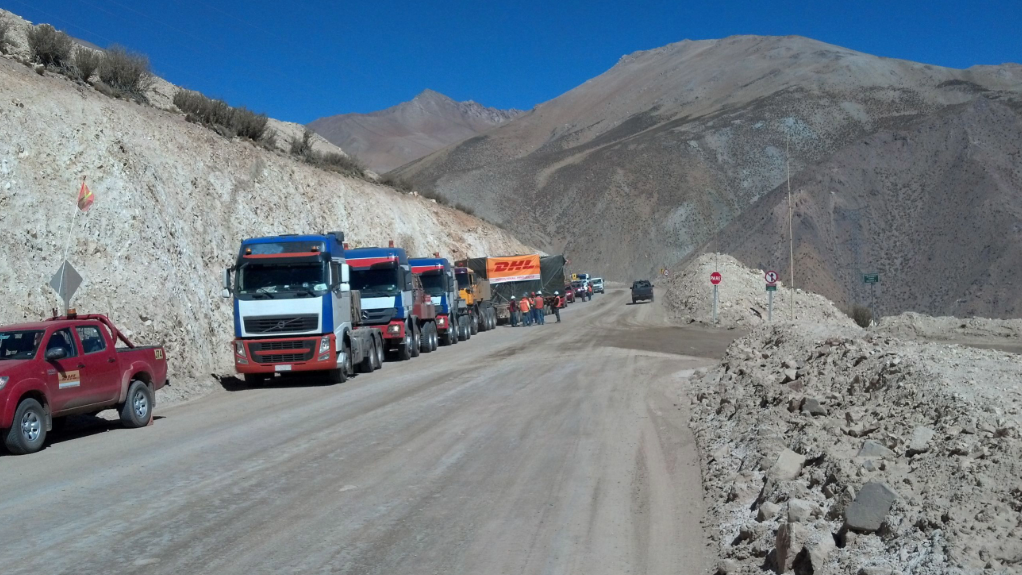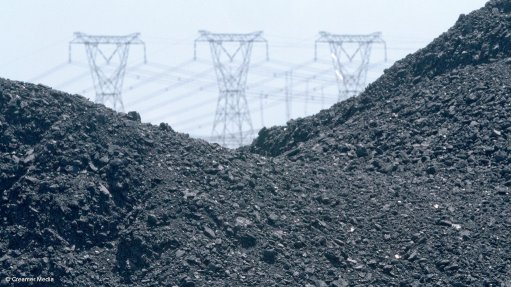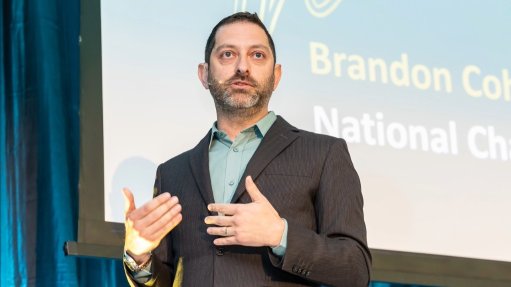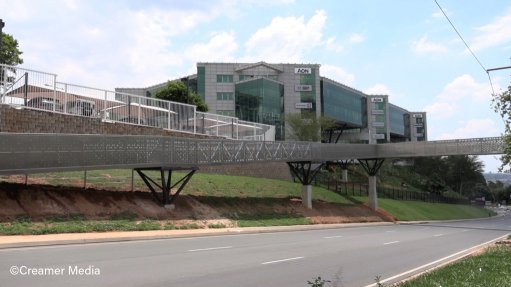Logistics innovation, investment will benefit the economy



GAVIN ERASMUS The logistics sector can overcome challenges and prosper by adopting new technologies and with proper investment
ADVANCED LOGISTICS AI and advanced analytics, coupled with reverse logistics, can ensure speedy processes, enhanced efficiency, and sustainability
The numerous and imminent innovations and trends in the African logistics sector, while presenting challenges, could result in several benefits for businesses and industry, particularly mining, says international courier company DHL Global mining sector head Gavin Erasmus.
DHL’s ‘Logistics Trend Radar 7.0’ report cites phenomena such as AI, Cybersecurity 2.0, carbon accounting, eco-friendly practices, reverse logistics and supplier diversity as trends that will shape logistical processes.
Therefore, the organisation highlights the importance of cognisance and adoption of these trends by industry players, mining corporations and business owners to ensure that they stay abreast of developments in the ever-changing logistics sector.
While lamenting the current lack of funding for, and investment in, the adoption of practices, such as reverse logistics and cybersecurity, Erasmus says several applications could be realised in the African logistics sector, should companies invest in key innovations.
Firstly, AI and advanced analytics will enhance the way in which the logistics sector operates, speeding up processes, enhancing efficiency and fostering sustainability.
For example, Erasmus cites AI and advanced analytics’ allowing for predictive analytics to forecast demand and efficient inventory planning; AI can also ensure route optimisation.
Smart warehousing can be deployed in the e-commerce sector, where robotics can help to reduce labour costs, while blockchain technology can be used track products’ movements.
Further, companies can employ crowdsourced delivery networks to improve “last-minute” delivery of goods, reduce costs and create local jobs.
Digital logistics platforms can also be leveraged to reduce complexities of logistics data and establish an improved trade ecosystem.
Erasmus adds that mundane administrative processes can also be reduced through AI solutions, which can streamline cross-border clearance documents and procedures to facilitate “seamless trade”.
Cybersecurity 2.0, which will comprise fortified cybersecurity frameworks, will aid cross-border collaboration within international markets and allow for the safekeeping of supply chain data.
Meanwhile, the implementation of reverse logistics processes is important for creating a circular economy, Erasmus notes, explaining that reverse logistics refers to a product being returned to the manufacturer for recovery, repair, recycling or disposal.
However, there are challenges in the implementation of reverse logistics for African countries, as they primarily import finished goods from Europe, Asia or North America.
Erasmus cites the example of renewable- energy solutions, noting that, in Africa, mining corporations are shifting from traditional energy sources to alternative, renewable sources, incorporating battery storage, and solar and wind power.
It will be challenging for many African countries to implement reverse logistics, as batteries are primarily manufactured in high-income countries and, therefore, returning batteries, or other renewable-energy products will have costly implications.
“Reverse logistics is made even more difficult by the fact that most mining jurisdictions enjoy tax and duty benefits when importing goods,” he adds.
However, this potential loss can be offset by the benefits of logistics trends. These benefits include cost optimisation, cost savings, improved efficiency, enhanced customer experience and enhanced sustainability through carbon accounting.
For example, carbon accounting will enable the logistics sector to measure and manage carbon emissions throughout various operations, as well as reduce or eliminate the costs associated with the non-compliance of emissions reduction regulations.
“Electrified transport – including electric vehicles and micro-mobility devices – is also increasingly being adopted, offering cleaner alternatives to traditional logistics and reducing urban air pollution.”
Erasmus emphasises the importance of establishing a futureproofed supplier diversity structural framework to boost economic empowerment, employment and inclusivity in Africa, as this will enhance local supply chain reliability and increase investment in the sourcing of local goods.
Article Enquiry
Email Article
Save Article
Feedback
To advertise email advertising@creamermedia.co.za or click here
Comments
Press Office
Announcements
What's On
Subscribe to improve your user experience...
Option 1 (equivalent of R125 a month):
Receive a weekly copy of Creamer Media's Engineering News & Mining Weekly magazine
(print copy for those in South Africa and e-magazine for those outside of South Africa)
Receive daily email newsletters
Access to full search results
Access archive of magazine back copies
Access to Projects in Progress
Access to ONE Research Report of your choice in PDF format
Option 2 (equivalent of R375 a month):
All benefits from Option 1
PLUS
Access to Creamer Media's Research Channel Africa for ALL Research Reports, in PDF format, on various industrial and mining sectors
including Electricity; Water; Energy Transition; Hydrogen; Roads, Rail and Ports; Coal; Gold; Platinum; Battery Metals; etc.
Already a subscriber?
Forgotten your password?
Receive weekly copy of Creamer Media's Engineering News & Mining Weekly magazine (print copy for those in South Africa and e-magazine for those outside of South Africa)
➕
Recieve daily email newsletters
➕
Access to full search results
➕
Access archive of magazine back copies
➕
Access to Projects in Progress
➕
Access to ONE Research Report of your choice in PDF format
RESEARCH CHANNEL AFRICA
R4500 (equivalent of R375 a month)
SUBSCRIBEAll benefits from Option 1
➕
Access to Creamer Media's Research Channel Africa for ALL Research Reports on various industrial and mining sectors, in PDF format, including on:
Electricity
➕
Water
➕
Energy Transition
➕
Hydrogen
➕
Roads, Rail and Ports
➕
Coal
➕
Gold
➕
Platinum
➕
Battery Metals
➕
etc.
Receive all benefits from Option 1 or Option 2 delivered to numerous people at your company
➕
Multiple User names and Passwords for simultaneous log-ins
➕
Intranet integration access to all in your organisation


















